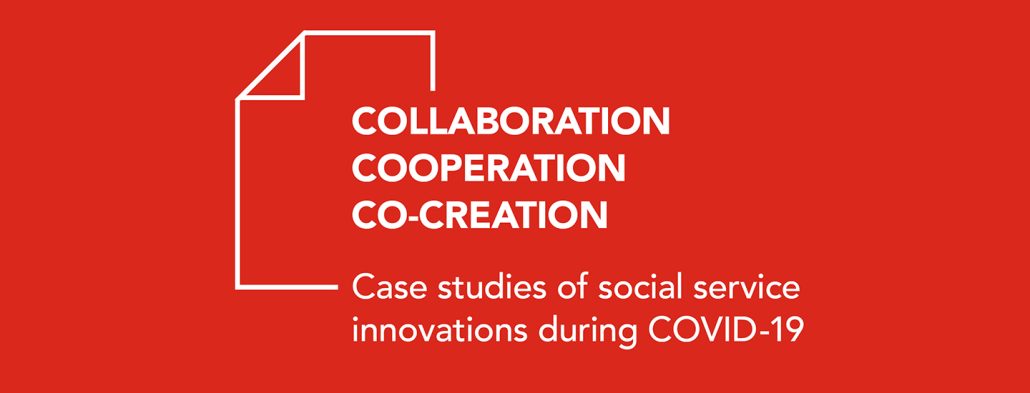
Throughout the pandemic, United Way Greater Toronto’s network of over 300 funded agencies and community partners mobilized quickly to meet urgent and evolving needs and problem solve in real time — leading to effective innovations with lasting potential to move the needle on critical issues facing communities.
UWGT’s commitment to systems-level change means not only championing initiatives with this potential, but also harvesting and amplifying the lessons they have to offer. “Collaboration, Cooperation, Co-Creation: Case Studies of Social Service Innovations During COVID-19,” the latest addition to our body of original research, does exactly this. Each of the series’ five case studies spotlights examples of social service innovation during the pandemic that hold transformative potential for our region, from accelerating integration across sectors to achieving more equitable outcomes, effectively unlocking the digital promise of virtual service delivery, and more.
Together, these case studies reveal practical lessons and ingredients for success that can be replicated, scaled, and bolstered to bring this future into focus:
- The complex problems of the pandemic required collaborative solutions. The pandemic made existing challenges worse by adding more complexities, restrictions and urgency. No one institution or agency acting on their own could address the varied and intertwined needs of the community. The pandemic catalyzed deeper relationships and new partnerships within the sector and across health care entities, municipal departments, provincial ministries and public health, all focused on enhancing outcomes for communities.
- Trust is what makes collaborations work. Pivots in a crisis require quick, decisive action. Many of the innovative collaboratives leveraged existing relationships to respond to emerging needs. Striving for consensus decision-making and an openness to have honest conversations were cited frequently as ways of working together that built even deeper trust among partners. While this approach can take more time, these emerged as fundamental guiding principles to collaborative work.
- Partners in advocacy going forward. Trusting cross-sector collaborations have been created and deepened over the course of the pandemic, resulting in expected and unexpected alliances on issues like health equity and mental health, among others. More health care providers are joining the community services sector in collective advocacy on critical issues. The time is ripe for development of cross-sector coalitions to collectively drive systems change efforts.
- Successful solutions were informed by a deep understanding of community. In all cases, the deep knowledge community agencies have about the people they work with was key to success. Agencies integrated that knowledge into program models and advocated for them with partners, leading to more effective strategies and better client outcomes.
- Flexible funding allowed agencies to pivot in a crisis. When the context changes, agencies need the latitude to respond accordingly. But new initiatives, programs and delivery mechanisms cost money and drawing down financial reserves poses risk to organizations. Funder flexibility enabled agencies to reallocate program dollars to respond to changing needs.
UWGT has long championed these tools and the innovation they make possible – from providing flexible funding, general operating support and ongoing backbone support that foster resilience and drive progress during and beyond turbulent times, to cultivating cross-sector networks that allow us to achieve exponential change together.
The community services sector has demonstrated remarkable capacity for agility, adaptation, and leadership. These case studies show us how to catalyze this capacity moving forward, in ways that can help us collectively meet urgent needs, chart paths through future instability and uncertainty, and overcome longstanding challenges that stand in the way of our common goal of inclusive communities where all residents can thrive.
Isabel Cascante
Director, Research, Public Policy and Evaluation
United Way Greater Toronto